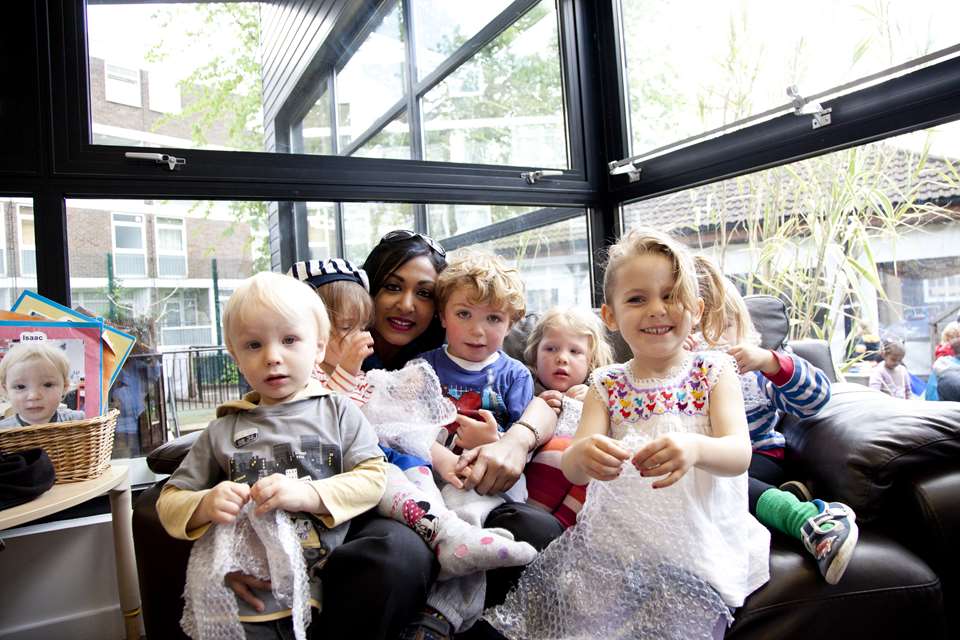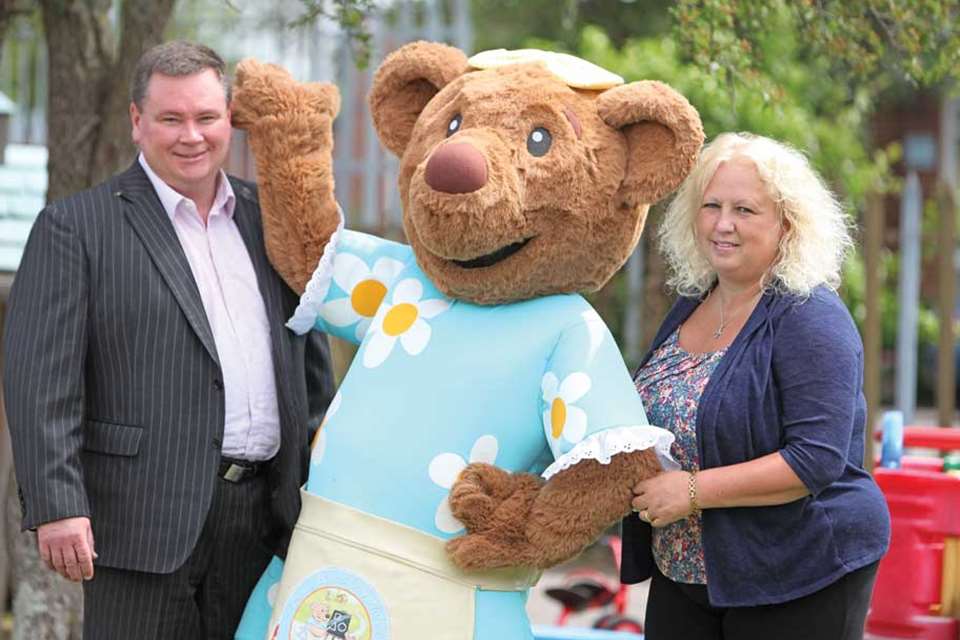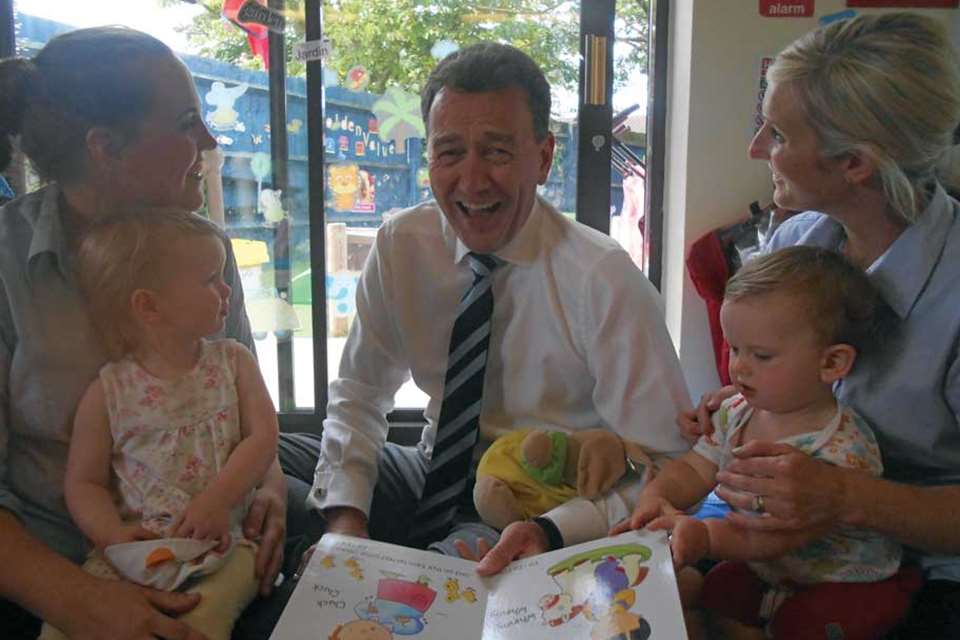Business Models Part 6: Maintained sector - Back to school
Monday, February 23, 2015
In the final part of our series on business models, Hannah Crown looks at how schools are working the daycare market.

Schools have been involved in the education of our youngest children since the industrial revolution. The first 'infant school' in Britain was opened in 1816 by socialist reformer Robert Owen for children aged from around two with the aim of, in Owen's words, 'forming the character of the children of the working class'. Two hundred years later, Ofsted chief Sir Michael Wilshaw came full circle when he said the current privatised system was 'letting down' many children, especially those from poorer backgrounds: 'What children facing serious disadvantage need is high-quality early education from the age of two, delivered by skilled practitioners with degrees in a setting that parents can recognise and access easily. These already exist. They are called schools.'
Whatever the rights and wrongs of the debate, many schools have been running nursery and Reception classes for years, of course, while a small number of others are running private, voluntary and independent (PVI)-style settings as businesses, and within this field there are variations in approach.
St Bede Academy in Bolton has had a full daycare operation since 2003. The school now runs five nurseries in Bolton and Wigan, and is soon to provide 541 places when its sixth nursery opens in April. This includes a PVI-style setting in a converted house on the school grounds, plus a separate 'school' nursery that opens during school hours and an out-of-school club.
The school's nursery business runs under a charitable company called St Bede Childcare which was created as the school became an academy in 2011. Headteacher Jack Hatch says he began with a 'conventional school with a part-time nursery, with 30 children in the morning and 30 in the afternoon.' But, he says, 'parents don't want that sort of provision - they often like mornings but not afternoons, for example. We saw what was happening with our children going to private day nurseries and spending all day there. In those days it was just childminding really - it's not like that now - and we found this was fine for childcare but not so good for education. Our mission was to create childcare with education elements'.
Before the Church of England school became an academy it was voluntary aided, which helped foster a general 'entrepreneurial' spirit among the management team, Mr Hatch explains. 'I have been a bit of a rebel. I became a head at a different school in the early 80s and having done a spell as a Reception teacher I was desperate for a nursery. At St Bede, the maintained nursery was already there. I had a governing body that wanted to back me and was looking to move us on.'
Another school with a private nursery (a 36-place setting open between 8.45am and 3.30pm) is Broadclyst Community Primary School in Exeter. For headteacher Jonathan Bishop, the idea of 'continuity of provision'
is important. The school converted to academy status in 2010 and the associated freedoms included extending the age range to two to 11 'rather than being a governing body led pre-school'.
'We used to focus on transition - trying to get them from pre-school into school,' he says. 'For me, it's about supporting that transition early and providing stability for a child's education. Because the class is part of the school the children have already been coming to assembly or the forest school area, or using the library. They don't have to worry abut going to big school now as they are at big school.'
Another motivation was to professionalise the setting. 'The nursery was formerly a pre-school run as a charity with a committee. We had a lot of well-meaning parents who didn't necessarily have the right skills and thought they were going into a PTA role raising money without fully realising they were charity trustees and all the HR employment side of the business they had full liability for,' he says.
Finances
Both St Bede and Broadclyst schools are academies, which are funded directly from central Government. In practice, this means greater financial freedom than state schools, which have funds and where some support services are allocated by a local authority. The relatively large charity budget held by St Bede Childcare necessitates a professional finance director, although when the business began, the financial management was the responsibility of the head and his deputy. The school can also sell its own support services to the charitable company that runs the nurseries. Its company status means it has taken out private loans to buy new nurseries.
Profits are reinvested, and this money provided half the budget for six new classrooms, while the school has also been able to provide a free tutoring programme and two-week holiday school. To sacrifice the time and effort necessary to get into the nursery business, says Mr Hatch, 'there has got to be something in it for the school'.
It is not just academies that are in on the act. Monkspath Junior and Infant School is a maintained school with a separately branded private nursery that is managed by the school's governing body. Monkeys Childcare provides morning and afternoon sessions for three- to five-year-olds, including funded places, along with a 'Go Bananas' holiday club for three- to 11-year-olds and wraparound care. In the past, the Solihull school has also managed a local children's centre.
The school aims to take a 'holistic approach', according to business manager Sanj Dhatta.
Foundation Stage classes are co-ordinated by a Foundation Stage leader and according to the school prospectus, 'the teaching staff, learning support workers and support staff recognise and value the uniqueness of children with their varying experiences, abilities and motivation and aim to provide a curriculum which nurtures children's individual growth and development'. The school also states the importance of the early years for 'building of confidence and independence'.
Teacher led?
Former education minister Liz Truss described St Bede as 'the future' and praised its use of 'highly qualified staff'. While the St Bede 'school' nursery is led by staff with Qualified Teacher Status (QTS), those at the on-site nursery Baby Bede have Early Years Professional Status, Early Years Teacher Status and early years degrees. The school ethos is founded in traditional early years practice. 'Children should be given the opportunity to develop at individual rates with people who love and care for them,' says Mr Hatch. 'Our Reception class is more like a nursery. The more formal aspects of school, I think, we can rush.'
Monkeys Childcare at Monkspath, a good setting with 'outstanding' features, is another without QTS staff. Its manager Lesley Pinner is qualified to Level 3.
Contrastingly, the Broadclyst nursery is led by a teacher with QTS, and two other members of staff possess the status. Other staff, such as those with Level 3 qualifications, are referred to as early years teaching assistants. This is because, says Mr Bishop, 'the nursery is same as another school class'. 'Parental associations of early years can often be about play school and nurture and care. I point out to people we don't provide less care to an 11-year-old being educated at our school. (It's just) the care and education requirements might be different for a two-year-old.'
Additionally, he says, 'a bigger staff workforce means you can develop people', and 'staff at the nursery have access to a health scheme, a bike scheme and a pensions scheme' that they might not have access to in a PVI setting - a useful recruitment tool.
Aside from their nursery businesses, St Bede and Broadclyst are both teaching schools, defined by the Government as 'outstanding schools that work with others to provide high-quality training and development to new and experienced school staff'.
Decision making
At Baby Bede, there are managers for each nursery and two area managers who, aside from their oversight responsibilities, lead on aspects such as the school's new childminder agency and holiday clubs. The area managers are responsible to the senior strategic team, which is comprised of the unpaid chair of governors, Mr Hatch and the finance director, who are also directors of the charitable company.
At Broadclyst, where the nursery is seen as 'just another class in the school', decisions on areas such as recruitment are also carried out by the head, governors and relevant school leaders. 'I might be recruiting for an (early years) skillset, but I would say we are part of a big team. I might ask that person to work in Year One - it's having a more mobile workforce,' says Mr Bishop.
Being a large organisation is not without potential risks, however. How does a school limit the potential collateral damage to its reputation if a serious issue arises in the nursery? Mr Hatch says, 'We have a large, strong team and we know our weaknesses. We also know how the local authority works, who the contacts are, and how to get the best advice and support. We have been able to motor through because of this.
'With our nurseries, we feel we are on a mission now. We recognise that children are individuals and want to give them the best experience they can really benefit from. We work hard to make it like that, rather than a case of fitting them into a programme.'









